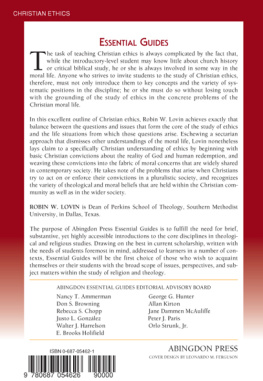ENTREPRENEURIAL ETHICS AND TRUST
The Making of Modern Africa
Series Editors: Abebe Zegeye and John Higginson
Growth or Stagnation? South Africa heading for the year 2000
Mats Lundahl
Sudans Predicament Civil war, displacement and ecological degradation
Edited by Girma Kebbede
Doctors and the State The struggle for professional control in Zimbabwe
Dorothy Mutizwa-Mangiza
Class Formation and Civil Society: The Politics o f Education in Africa
Patrick M. Boyle
The Social Services Crisis of the 1990s
Edited by Anna Kajumulo Tibaijuka
Oil and Fiscal Federalism in Nigeria
Augustine A. Ikein and Comfort Briggs-Anigboh
Environment, Health and Population Displacement
Andrew E. Collins
International Banking and Rural Development
Pade Badru
Structural Adjustment and Mass Poverty in Ghana
Kwabena Donkor
Contemporary Issues in Socio-economic Reform in Zambia
Edited by Herrick C. Mpuku and Ivan Zyuulu
The State and Organised Labour in Botswana
Monageng Mogalakwe
First published 1999 by Ashgate Publishing
Reissued 2018 by Routledge
2 Park Square, Milton Park, Abingdon, Oxon, OX14 4RN
711 Third Avenue, New York, NY 10017, USA
Routledge is an imprint of the Taylor & Francis Group, an informa business
Copyright Yakubu Zakaria 1999
All rights reserved. No part of this book may be reprinted or reproduced or utilised in any form or by any electronic, mechanical, or other means, now known or hereafter invented, including photocopying and recording, or in any information storage or retrieval system, without permission in writing from the publishers.
Notice:
Product or corporate names may be trademarks or registered trademarks, and are used only for identification and explanation without intent to infringe.
Publishers Note
The publisher has gone to great lengths to ensure the quality of this reprint but points out that some imperfections in the original copies may be apparent.
Disclaimer
The publisher has made every effort to trace copyright holders and welcomes correspondence from those they have been unable to contact.
A Library of Congress record exists under LC control number: 99073623
ISBN 13: 978-1-138-62465-8 (hbk)
ISBN 13: 978-0-429-46061-6 (ebk)
ACCs:
Advanced Capitalist Countries
AD:
Anno Domini (year of the Christian Calendar)
AFEM:
Autonomous Foreign Exchange Market
AFF:
Advanced Fee Fraud (419)
AH:
Anno Hegirae (year of the Hijra)
BOP:
Balance of Payment
CAC:
Corporate Affairs Commission
CBN:
Central Bank of Nigeria
CFAO:
Compagnie Francais DAfrique Occidentale
COP:
Current Operating Profit
FAO:
Food and
Agricultural Organisation of the United Nations
EIU:
The Economist Intelligence Unit
FEPA:
Federal Environmental Protection Agency
FTSE:
Financial Times Stock Exchange
IAP:
Industrial Arbitration Panel
ILO:
International Labour Organisation
ITF:
Industrial Training Fund
KSG:
Kano State Government
LDCs:
Less Developed Countries
MAN:
Manufactures Association of Nigeria
NECA:
Nigerian Employers Consultative Association
NEPA:
Nigerian Electric Power Authority
NEPD:
Nigerian Enterprises Promotion Decree
NEPU:
Northern Elements Progressive Union
NIC:
National Industrial Court
NPF:
National Provident Fund
NLC:
Nigerian Labour Congress
NNPC:
Nigerian National Petroleum Corporation
NPC:
National Population Commission
OPEC:
Organisation of Petroleum Producing Countries
PPIB:
Price Productivity and Incomes Board
PRP:
Peoples Redemption Party
PVC:
Polyvinylchloride
SAP:
Structural Adjustment Program
SCOA:
Socit Commerciale Ouest Africaine
SON:
Standards Organisation of Nigeria
UAC:
United African Company
UNCTAD:
United Nations Conference on Trade and Development
UNESCO:
United Nations Educational, Scientific, and Cultural Organisation
My aim in this book is to provide a comprehensive analysis of how culture influences entrepreneurial ethics and trust in a northern Nigerian society centred in Kano. I begin with the assumption that culture does not operate in a vacuum. It influence political, economic, and social institutions and vice versa.
The book is not intended to explore all the broad aspects of culture and societal development. Rather, it is set to examine the interplay among culture, entrepreneurial ethic and trust relations in the northern Nigerian plastic industry. To provide a meaningful interpretation of the cases, various cross-cultural paradigms, and their relevance for providing an understanding of the culturally peculiar patterns in the business organisations are reviewed. Apart from the plastic sector, the book explores wide-ranging topics that strike the core of contemporary business behaviour in Nigeria and many developing societies.
To arrive at a meaningful understanding of contemporary business behaviour, the historical evolution of indigenous entrepreneurship is examined. A look at the link between culture and entrepreneurial rationality is significant to the study. Thus, the logics between religious reform and new forms of entrepreneurial rationalisations are crucial in this regard. The analysis of rationality in Hausa society is extended in the latter part of the study to cover hidden economic activities of secluded women.
Entrepreneurial trust relations and their implications for the business sector are crucial to this study. In the concluding sections of the study, an attempt is made at reformulating the modernisation theory from a cultural perspective.
Having said this, it will be most remiss on my part not to mention the important contributions of people and institutions from which various kinds of support was received. First and foremost, my sincere thanks to Professor Emeritus Ulf Himmelstrand for reading early drafts of this book and providing the necessary guidance. The association with Professor Himmelstrand has yielded immense academic profit and highly cherished personal experience in terms of patience. To Professor Tom R. Burns, Dr. Endre Stiansen and Steve Turner, I am most indebted for the incisive and constructive criticisms on the early drafts of the manuscript. Professors Peter Ekeh and Said Arjomand were very effective in drawing my attention to new topics and relevant literature on the subject. In preparation of this book, I have also benefitted from the editorial talents of Leslie Irvine, Minna Richt and Emily Merson. None of these people should be held responsible for any of the views I express.








